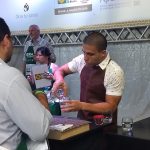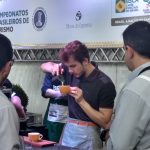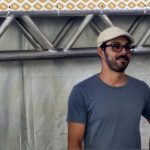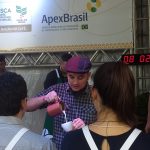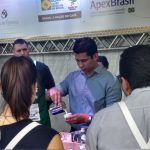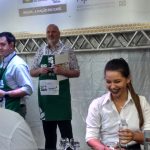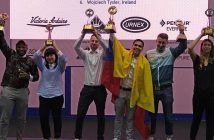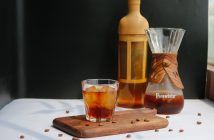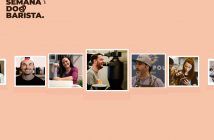The event, hosted by the Brazilian Specialty Coffee Association (BSCA), took place last week (26-28) at the Jockey Club, next to Casa Camolese, a mixed restaurant, bar, craft brewery, high-class cocktail place, jazz and coffee club.
It had 24 participants from different locations in Brazil. The baristas or bar persons had 15 minutes each to prepare four espressos, four drinks with steamed milk and four original coffee-based drinks. All drinks were prepared on two Nuova Simonelli machines, the same one used in international competitions.
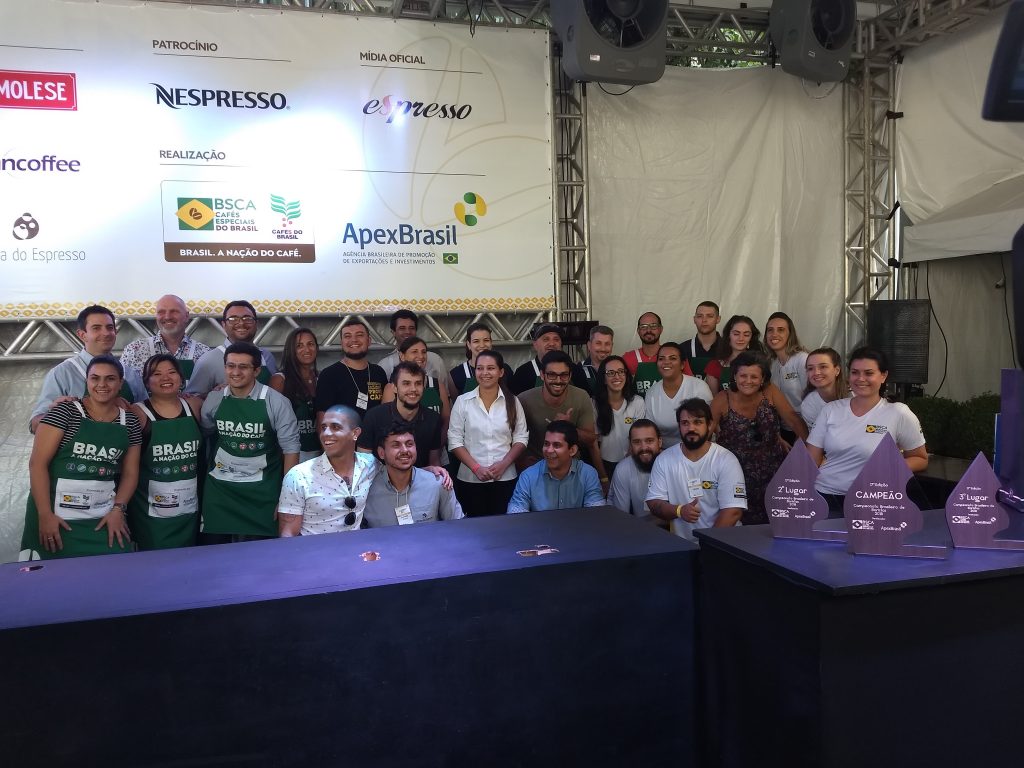
The drinks were then served to the sensory and technical judges, a team supervised by the Norwegian resident in Austria, John Stubberud (certified judge and representative of the organization entitled World Coffee Events-WCE), and had as main judges Luiz Salomão (representative of BUNN in Brazil) and José Renato Figueiredo (barista, roaster and producer, from São Sebastião do Paraíso-MG). Sabine Parrish, an anthropologist at the University of Oxford who studied coffee consumption in São Paulo, and Luke Adams of Standart Magazine also attended the event.
The qualifying stage on Friday (08/26) and Saturday (08/27), defined the six finalists who played the grand final on Sunday. The six best placed were: Lucas Salomão – Pasquali Máquinas; João Augusto Michalski – Café du Coin; Franciele Gomes – Independent, Andre Martinelli – Baden Roasting; Fernando Santana – Barista Company and Thiago Sabino, from Il Barista.
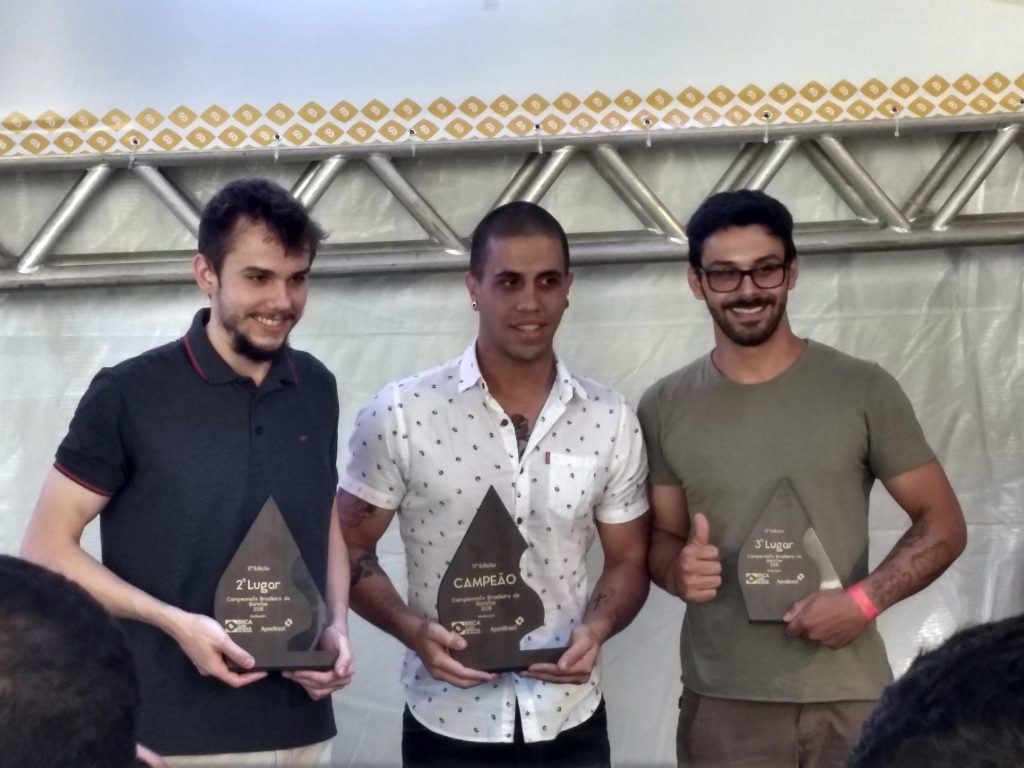
The winner of the final was Thiago Sabino, who won his second title (the first was won in the 14th championship). The second place was barista João Augusto Michalski and the third with André Martinelli.
The title guaranteed Thiago a final chance to represent Brazil in the world championship, the World Barista Championship, which will take place in Amsterdam, Holland, from June 20 to June 23, during the World of Coffee fair.
Our impressions on the 17th Brazilian Barista Championship
In the competition held last weekend in Rio de Janeiro, in an improvised tent inside the Jockey Club, next to Casa Camolese, by the way a beautiful place, once again the Brazilian way has proven it will not get anyone anywhere.
The world of specialty coffees is becoming more sophisticated and professionalized. Competition calendars and events are being closed more than one year in advance. Sponsors can plan themselves, baristas have plenty of time to train, pick their coffee and give their best.
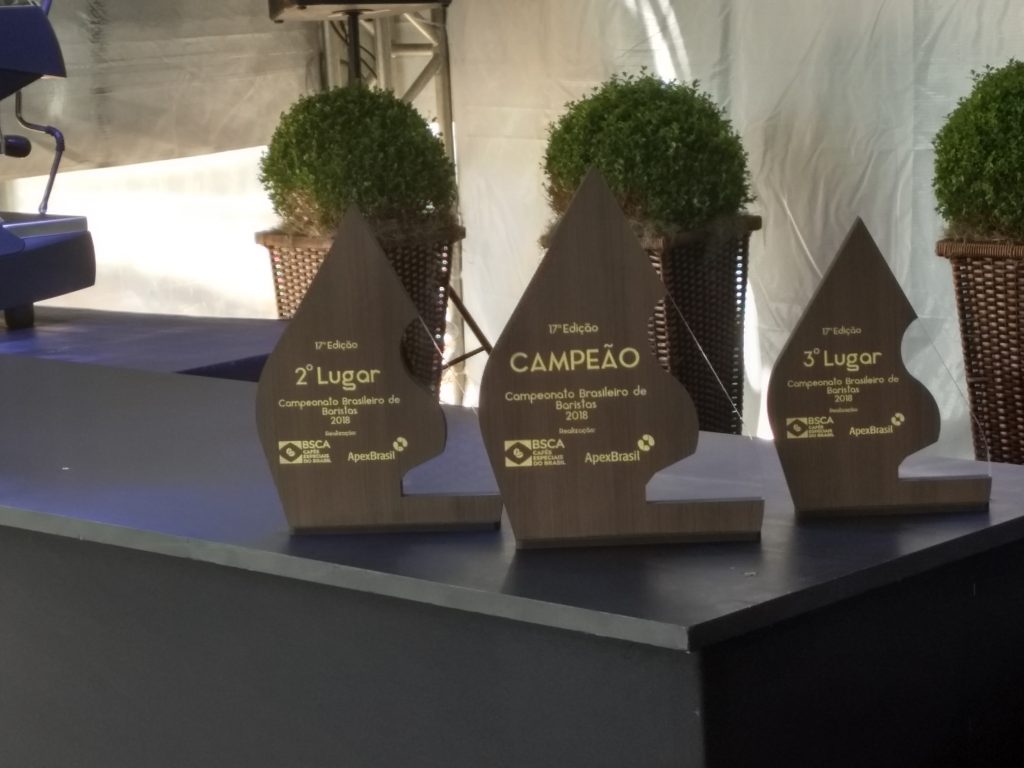
The public is informed and invited to participate, and in most countries, concomitant to the championship, there is a great fair with related products and services.
However, that was not what we saw in Rio de Janeiro. To begin with, the Brazilian Baristas Championship of 2017 was held in October, in São Lourenço da Serra. The winner, Léo Moço, remained in the most competent position for only two months.
We even understand that this can be an effort to match the national calendar with the international one. Nevertheless, would it not be better, then, to give up participating in 2018 in the world championship, to enter 2019 with everything already arranged?
Precarious infrastructure
When it comes to infrastructure, this year’s event left a lot to be desired: pitching tents in Rio de Janeiro, right in the summer, is never a good idea. On the first day, in the morning, it rained so much, that it wet more inside than outside, disturbing the good progress of the works. On the second day, the generator was disconnected on time at 5:00 p.m. And the announcement of the finalists had to be done in the shout, literally, and without any kind of lighting.
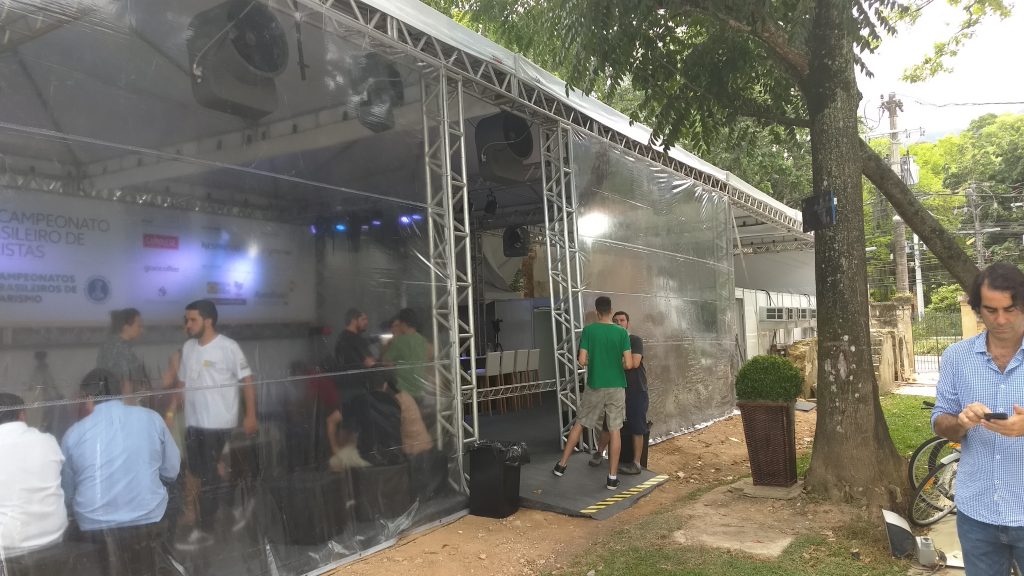
On the third day, the second participant was interrupted by the sound car of the carnival block that closed the main access to the event until 14:00. And a very big gap between one finalist and the other one made the presentations creep through the day, in a very unpleasant manner.
For the public who was at leisure or at work, a huge challenge: there were no power sockets to re-charge cell phones and computers, making it harder for the press to work. For drinking water, you had to spend R$ 7.00 at the restaurant next to the event site. One could use chemical bathrooms or count on the goodwill of the restaurant staff. What to say about coffee? No-one could taste it in the days of the elimination round. At the end, baristas Léo Moço and Lucas Salomão served some espressos to the public, for a short period.
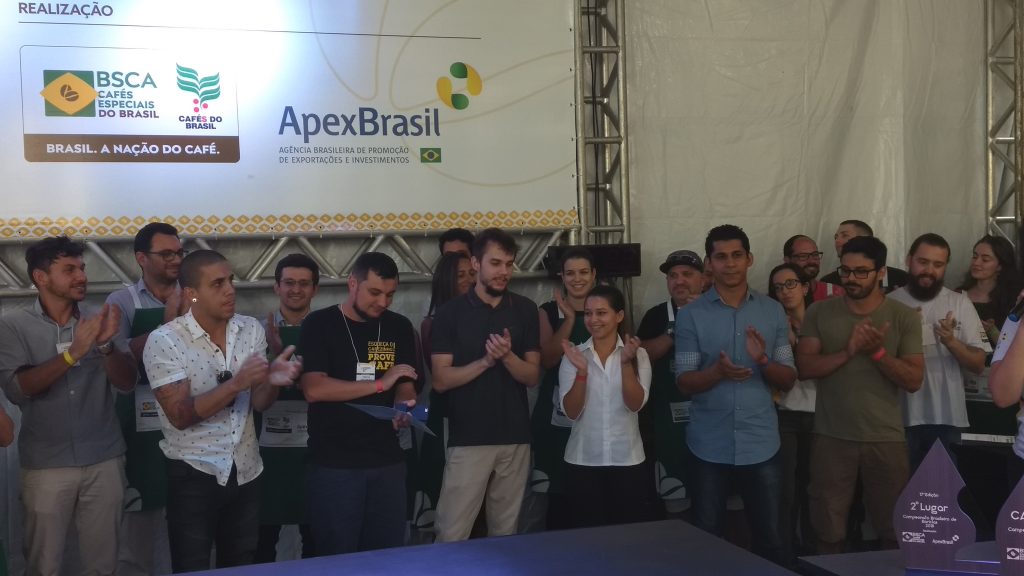
With the lack of disclosure of the event to the general public, which does not even know that special coffee exists, what we saw was more of the same: the closed club of special coffee connoisseurs, who know each other. And competitors’ relatives. A great missed opportunity to bring the universe of specialty coffees close to the lay public, the second largest consumer market in the world, which is no small thing!
Nonetheless, the worst thing is that the structure has greatly harmed the participants, who went there to show all their competence. The heat and moisture of the place hugely spoiled the baristas’ work.
The positive highlight goes for the contestants, the jurors and the master of ceremonies, who conducted the event elegantly, even with the swollen ankles, as a result of the attack of black flies.

